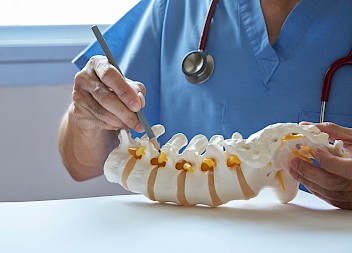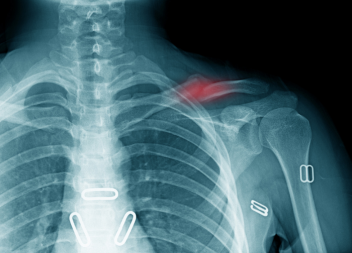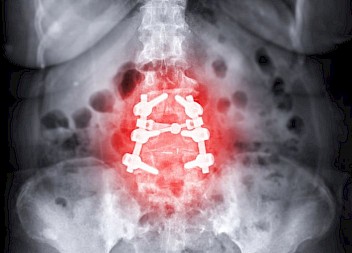We are currently acting in a case where we have obtained highly supportive medico-legal reports to support our client. In May 2014, she was only in her 30s when she suffered a large disc prolapse with clear cauda equina compression. Her GP referred her to hospital where she was kept in overnight, but no MRI scan was carried out which would have led to proper diagnosis. Diagnosis was only made 16 days later at a different hospital that did do an MRI. Despite late surgery, our client has been left with severe symptoms of bowel, bladder and sexual dysfunction, with left lower limb symptoms and a foot drop. Such complications would have been avoided with timely/earlier diagnosis and surgery. We are in the process of investigating value, having obtained a neuro rehabilitation report but also need a reports in other specialist fields to ensure our client receives all compensation to which she is entitled to provide for her needs for the rest of her life. Her claim will be of very high value.
Some other examples of past awards in cauda equina cases are as follows: –
£3.4 million, to a 35-year-old gentleman who injured his back and was sent away from a hospital emergency department the day after. The next day he went back to the hospital, as his condition had worsened and was then diagnosed with progressive cauda equina syndrome. In the early hours of the next day, he underwent emergency decompression surgery. The defendant partly admitted liability, admitting there had been a failure to recognise and treat the condition on the first hospital attendance and that there would have been some resulting injury. However, it was not admitted that the delay caused immobility, inability to work in dependency on crutches and mobility scooter. Nevertheless, the very large settlement award was agreed pre-trial in January 2019.
£1.6 million for a 42-year-old gentleman for neurological injuries sustained after hospital failed to remove a bulging lumbar disc in September 2005 and instead caused a dural tear. He suffered cauda equina syndrome, had to use a wheelchair and was incontinent of faeces. This was in 2009. In today’s terms, a claimant in this position would be likely to receive a much higher award.
£1.5 million for a 46-year-old lady for injuries suffered following a delay in diagnosing and treating cauda equina syndrome in 2003. She suffered impaired sphincter control, right foot drop and her bowel and bladder functions were affected and, when later undergoing medical procedures, she contracted MRSA. This was a settlement in 2009 and again, in today’s terms, a claimant in this position would receive a much higher award.
£750,000 for a 50-year-old gentleman after failure to appropriately investigate and identify a large central disc prolapse in November 2008. He suffered cauda equina syndrome, resulting in neurological impairment of mobility, incontinence, sexual dysfunction and neuropathic pain. Liability was admitted and a settlement was agreed in 2013 avoiding the need for a trial.
£250,000 to a lady who had suffered long-standing back problems and had undergone two past operations on her spine. She developed difficulty passing urine and numbness in her right buttock going down her thigh. Her GP and the local Accident and Emergency Department did not recognise the severity of her problems, so her eventual surgery was delayed. She was left with permanent and severe pain in one leg and foot and a loss of bowel and bladder control.
£225,000 to a 54-year-old man, a former lorry driver, who injured his back after moving road signs around in a lorry. He visited two different GPs who both failed to spot Cauda Equina Syndrome. He lost his job and was left in permanent pain, with mobility problems. He needed shin splints and walks with the aid of elbow crutches.









